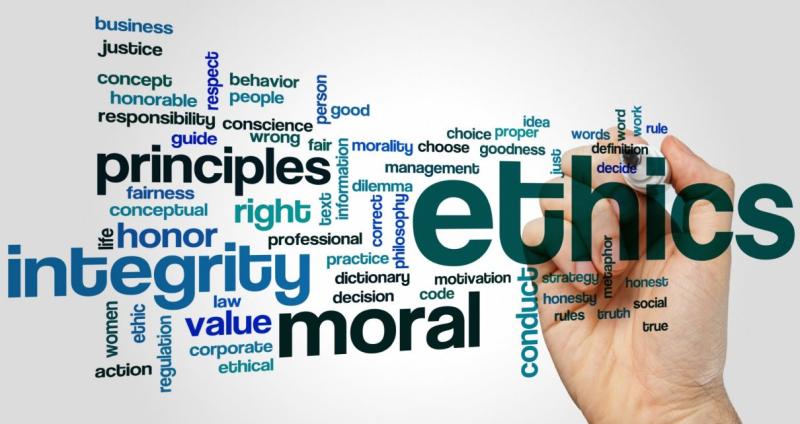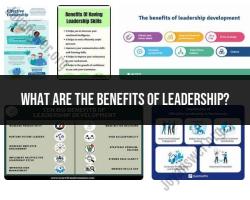Which Ethical Leadership Course should I take up?
Choosing the right ethical leadership course involves considering several factors aligned with your goals, preferences, and learning style. Here are key factors to consider:
Course Content: Review the course syllabus to understand the topics covered. Look for courses that address aspects of ethical decision-making, leadership models, organizational ethics, and case studies illustrating ethical leadership in action.
Instructor/Provider Reputation: Consider the reputation and expertise of the instructor or the institution offering the course. Look for educators with experience in ethical leadership, preferably with academic credentials or practical experience in the field.
Format and Delivery: Determine if the course is offered online, in-person, or as a hybrid. Consider your preferences and availability. Also, check if the course offers flexibility in pacing or if it's structured in a way that suits your schedule.
Reviews and Testimonials: Look for reviews or testimonials from previous participants. This feedback can provide insights into the course quality, the instructor's teaching style, and the overall learning experience.
Accreditation/Certification: Some courses offer certifications or credentials upon completion. Consider whether having a certificate or accreditation from a reputable institution is important for your career goals.
Cost and Value: Evaluate the course fee in relation to the content, duration, and value it provides. Some courses may be more expensive but offer additional resources, networking opportunities, or recognized certifications.
Practical Application: Check if the course includes real-world case studies, simulations, or practical exercises that can help you apply ethical leadership principles in your professional life.
Peer Interaction and Networking: Some courses offer opportunities for collaboration and networking with peers. Consider whether you prefer a course that encourages interaction and group discussions.
Relevance to Your Field: If you have a specific industry or field in mind, consider courses tailored to that sector. Industry-specific examples and discussions may enhance the relevance of the learning experience.
Duration and Time Commitment: Assess the course duration and the time commitment required. Ensure it aligns with your schedule and availability for completing assignments or participating in discussions.
Ultimately, the right ethical leadership course for you will depend on your specific learning objectives, preferences, and how well the course content aligns with your professional aspirations. Taking these factors into account can help you make an informed decision.
What factors should be considered when choosing an Ethical Leadership Course?
Navigating the landscape of ethical leadership courses can be challenging, but prioritizing the right factors can lead you to the perfect fit for your growth and goals. Here are some key considerations to keep in mind:
1. Course Content and Focus:
- Core principles vs. specialization: Do you seek a foundational understanding of ethical leadership principles, or are you interested in a specialized area like healthcare or environmental leadership? Choose a course that aligns with your desired depth and specific interests.
- Case studies and practical application: Does the course offer real-world scenarios and activities to apply ethical principles and decision-making models? Practical application is crucial for internalizing ethical leadership skills.
- Contemporary challenges: Does the course cover current ethical dilemmas and debates relevant to your field or current events? Learning to engage with contemporary issues strengthens your ability to adapt and navigate complex situations.
2. Delivery Format and Learning Style:
- Self-paced vs. instructor-led: Do you prefer independent learning or interactive sessions with instructors and peers? Consider your available time and preferred learning environment.
- Online vs. in-person: Do you favor the flexibility of online learning or the interaction and networking opportunities of in-person settings? Choose a format that best suits your preferences and lifestyle.
- Course materials and resources: Does the course offer diverse learning materials like lectures, readings, discussions, and multimedia elements? A variety of resources cater to different learning styles and enhance comprehension.
3. Credibility and Accreditation:
- Instructor expertise and experience: Are the instructors recognized experts in ethical leadership with practical experience? Choose a course with qualified instructors who can offer valuable insights and guidance.
- Institutional reputation: Is the course offered by a reputable university, professional organization, or training institute? Consider the program's standing and recognition to ensure quality and value.
- Accreditation or certification: If seeking professional certification, verify if the course aligns with specific accreditation requirements or qualifies for continuing education credits.
4. Additional Considerations:
- Cost and budget: Compare course fees and consider any financial aid or scholarship options available.
- Duration and commitment: Can you dedicate the necessary time to complete the course, considering its length and workload?
- Community and alumni network: Does the course offer opportunities to connect with other learners and build a network within the field of ethical leadership?
Remember, your decision shouldn't be solely based on the most popular or well-known course. Prioritize the factors that resonate with your goals, learning preferences, and professional aspirations.
I hope this comprehensive list helps you make an informed and confident choice when selecting an ethical leadership course! Feel free to ask if you have any further questions about specific courses or factors to consider.










